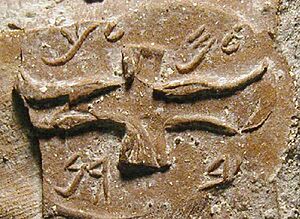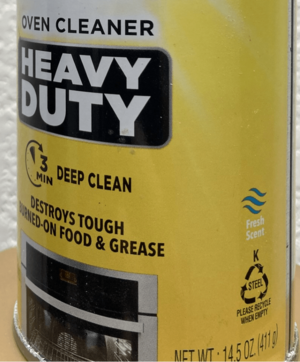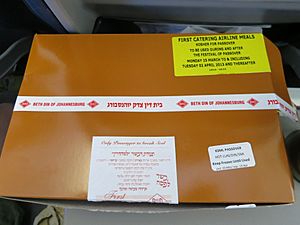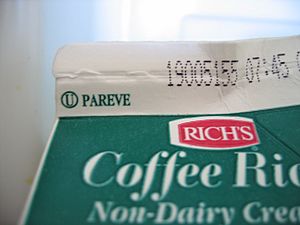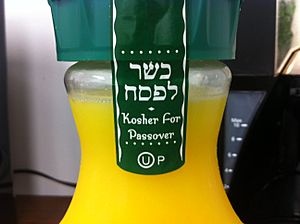Kosher certification agency facts for kids
A kosher certification agency is a special group or organization that gives a "seal of approval" called a hechsher (pronounced HEK-sher). This seal shows that certain foods, drinks, and even places where food is made or served follow Jewish dietary laws. These laws are called kashrut (pronounced KASH-root).
The agency makes sure that all the ingredients, how the food is made, and even the machines used, meet these Jewish laws. They have special representatives called mashgichim (pronounced mash-GEE-cheem). These mashgichim visit food factories and restaurants often to check that everything is still kosher. Each agency has its own special symbol, like a logo, that companies can put on their products. If a company stops following the rules, they lose the right to use the symbol.
It's important to know that kosher certification is only about Jewish law. It's not the same as government checks for food safety or quality.
Contents
What is Kosher Certification?
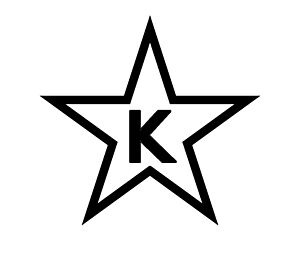
As of 2014, there were over 1,100 kosher certification agencies around the world. These agencies can be international, national, or local. Some even focus on things like ethical business practices or caring for animals and the environment.
Major Kosher Agencies
In the United States, five big agencies certify most of the kosher food. These are often called the "Big Five": the OU, OK, KOF-K, Star-K, and CRC.
Many of these agencies, like the OU, OK, Kof-K, and Star-K, work all over the world. Other important international agencies include the London Beth Din in London, the Kashrus Council of Canada, and Kosher Australia. There are many, many more agencies, with over 1,493 listed in a guide published in 2021.
A Look Back: History of Kosher Checks
The idea of checking food for kosher status is very old! The Babylonian Talmud, an ancient Jewish text, talks about a special seal used on olive oil jars for the Jewish Temple around 700 BC. These were called 'LMLK seals' and were stamped on large storage jars.
Later, in the 11th century, a certificate was found that showed cheese was kosher. This certificate was given by a rabbinical court in Jerusalem. It said the cheese was made in a factory that followed Jewish laws.
Even older, from the 6th century CE, a clay stamp with a Menorah (a Jewish symbol) was found. Archeologists believe Jews used it to stamp their bread dough. This helped people know the bread was kosher.
In New York City in the late 1700s and early 1800s, a shochet (a person who slaughters animals according to Jewish law) would sell meat with a kosher seal. If someone tried to sell non-kosher meat with a fake seal, they could get into trouble!
Modern Kosher Certification
For a long time, Jewish families mostly prepared their own food at home. They would make sure their meat was slaughtered properly and that milk was supervised by a Jewish person. They also kept milk and meat separate in the kitchen.
But in the 1900s, more and more food was made in factories. This made it harder for families to know if the ingredients were kosher. So, independent kosher certification agencies became very important.
The first independent kosher certification agency, OU Kosher, was started in 1923. Another agency, OK Laboratories, began in 1935. As big companies like Coca-Cola wanted to sell to Jewish customers, they started getting kosher certification. After World War II, even more factory-made foods appeared, and kosher certification grew a lot. For example, in 1950, the OU certified 184 products. By 1972, they certified over 2,500 products!
Today, many foods use ingredients from all over the world. These ingredients, like artificial flavors or preservatives, must also be checked. Mashgichim travel to factories in places like China and the Philippines to make sure these ingredients are kosher.
Sometimes, different agencies might have different opinions on whether a food is kosher. This depends on the ruling of their head rabbi. For example, some agencies might say a certain ingredient is not kosher for Passover, while others might say it is.
What Needs Kosher Certification?
According to Jewish law, these things usually need kosher supervision:
- Foods: This includes meat, chicken, fish, dairy products, fruits, vegetables, grains, drinks, and even food additives.
- How Food is Made: The entire process of making the food must follow kosher rules.
- Food-Service Places: Restaurants, hospitals, and university dining halls need supervision. Even if they sell kosher hot dogs, a mashgiach must be there. This person makes sure non-kosher food doesn't touch the kosher food. They also ensure that non-kosher items aren't sold in kosher wrappers.
How Does Certification Work?
The process starts when a company asks an agency for certification. Large food companies usually work with big, national, or international agencies. Smaller local businesses might get certification from a rabbi in their community.
The company gives the agency a list of all ingredients and even cleaning products they use. The agency then checks where these come from to make sure they are kosher. If the company changes any ingredients later, they must tell the agency.
Next, the agency's rabbis visit the factory or restaurant. They look at all the equipment, how food is made, how it's packaged, stored, and transported. If a factory makes both kosher and non-kosher food, the two systems must be kept completely separate. This includes making sure heat from one line doesn't affect the other. If the same machines are used for both, they must be thoroughly cleaned and treated with boiling water before making kosher food. The company also needs to keep good records of ingredients and production.
For restaurants or dining halls, there are extra rules. They must also follow Jewish laws for Shabbat (the Sabbath), Jewish holidays, and Passover.
The agency and the company sign a one-year contract. It usually renews automatically unless one side wants to end it.
The Kosher Symbol
Once approved, the company can put the agency's kosher symbol, or hechsher, on its products or display a certificate. Each agency has its own unique symbol, which is a registered trademark. This means only they can allow its use. If certification is taken away, the company must remove the symbol from all its packaging and ads.
Agencies are always watching for fake use of their symbols. They tell the public which companies have lost their certification. Using a trademarked symbol without permission is a serious offense.
Besides the main symbol, many agencies add letters to show if the product is dairy ("D"), meaty ("Meat"), pareve (meaning it has no milk or meat ingredients, often "Pareve"), or kosher for Passover ("P").
It's important to know that a simple letter "K" by itself cannot be trademarked. Anyone can put it on a product. So, a "K" alone usually doesn't guarantee that something is kosher.
The Role of the Mashgichim
The mashgiach or mashgicha is like the agency's "eyes and ears" at the food production site. They make sure that kosher and non-kosher food production stays completely separate. They need to know about all the ingredients and how they are made to confirm they are kosher. Most big agencies have huge databases of ingredients to help their mashgichim.
The mashgiach makes frequent, surprise visits during production. If they see anything unusual or have questions, they immediately contact a rabbinic coordinator. This coordinator makes the final decisions about kosher status. For a food-service event, a mashgiach must be present all the time to ensure kosher rules are followed.
Costs of Certification
Kosher certification agencies charge different fees. There's usually an annual fee for the certification itself. This fee covers the visits by mashgichim and other office costs. Some agencies might also ask for a percentage of the company's sales. There might also be a one-time "set-up fee" or fees for special production runs.
Some people think kosher certification makes products more expensive. However, companies usually get back the money they spend on fees. This is because more people buy their products once they are certified kosher. Sometimes, a company might need to change its machines or how it makes food to become kosher, which can add to the cost.
Other Certifications
Some kosher certification agencies also offer other types of certifications. For example, EarthKosher Kosher Certification offers certifications for organic, Paleo, non-GMO, or Halal products.
In Israel, it's common for companies to show a hechsher that certifies their products were not made during the Shabbat (the Jewish Sabbath).
More Than Just Certification
Besides certifying food, larger agencies also help educate consumers and improve the industry. For example, Star-K has a Kosher Hotline and publishes guides for Passover and appliances. They also have a magazine called Kashrus Kurrents and offer training programs.
See also
 In Spanish: Agencia de certificación kosher para niños
In Spanish: Agencia de certificación kosher para niños
- Products without kosher certification requirements
- Directory of Kashkrus agencies and symbols
 | Tommie Smith |
 | Simone Manuel |
 | Shani Davis |
 | Simone Biles |
 | Alice Coachman |


